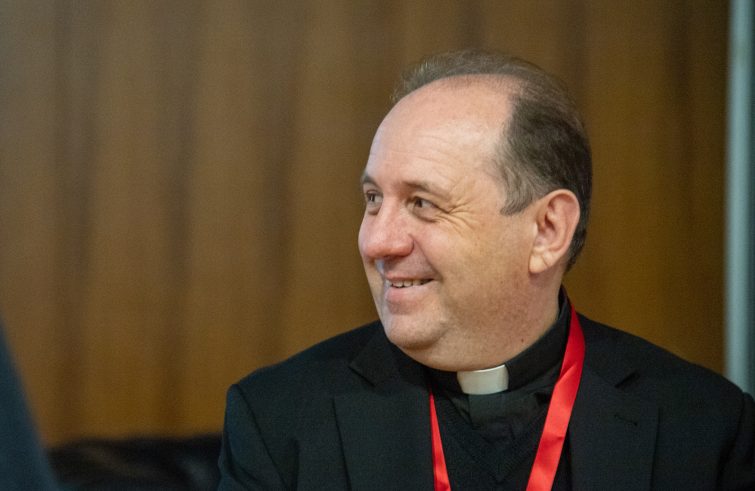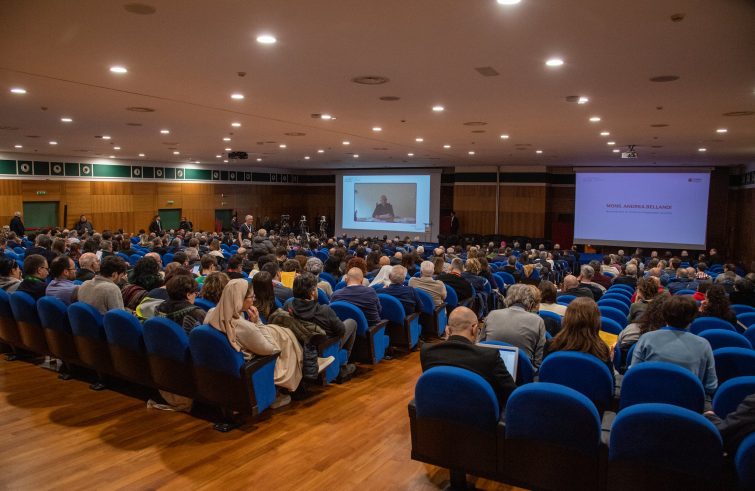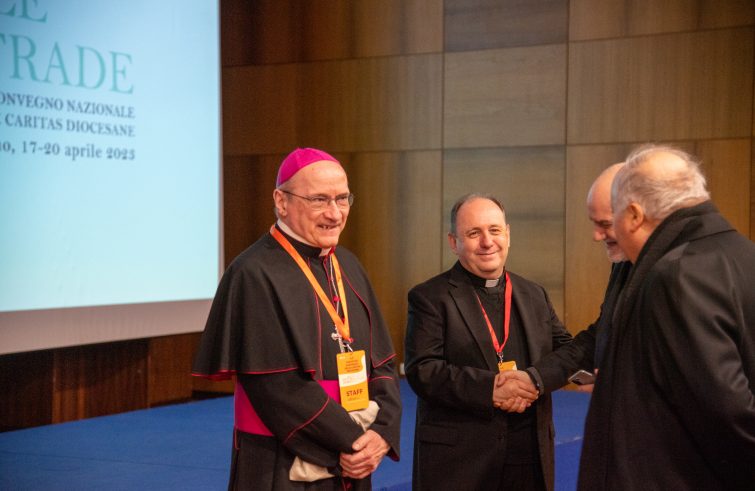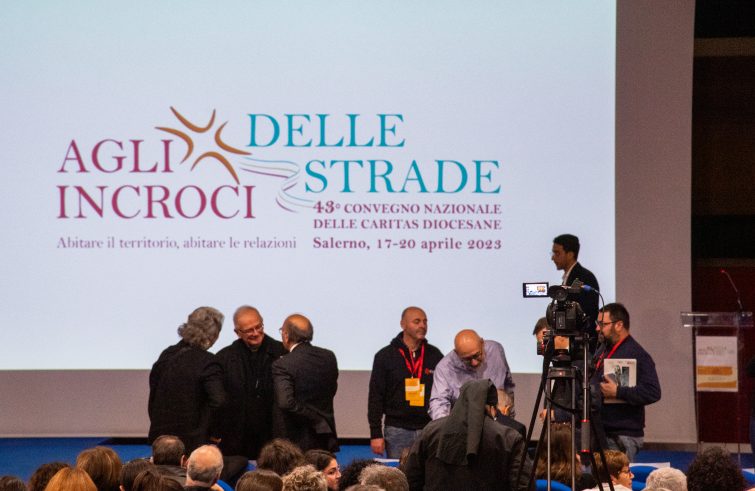
(from Salerno) – A “co-responsibility plan” involving the Church, civil society and the relevant institutions to combat poverty, school drop-outs, undeclared labour and all forms of organised crime, “that sees Caritas as a facilitator, for the challenges can only be tackled together”. This is the idea proposed by Fr Marco Pagniello, Director of Caritas Italy, at the close of the 43rd national Congress of diocesan Caritas agencies, which brought together 660 delegates from 173 dioceses in Salerno from April 17 to 20. Four days of testimonies and panel discussions highlighted the need to “Inhabit the territory with creativity”, giving a central role to communities, ensuring that the poorest brackets are at the centre of decision-making processes. And, above all, promoting dialogue with all, inside and outside the Church, with a clear approach to a number of pressing issues, such as migration: “Although a large majority of Italians perceive migrants as a threat, we firmly believe that future challenges require us to face up to the current situation. If not, without the contribution of migrants, problems such as declining birth rates or pensions will remain unsolved.”
 In your view, what were the highlights of the meeting in Salerno?
In your view, what were the highlights of the meeting in Salerno?
The Congress in Salerno offered an opportunity to reflect on the topical reality of life. Our aim was not only to listen to the hardships faced by the peripheries, but also to learn about the resources and potential emanating from these areas. Together with the diocesan Caritas network we are looking into creative ways to tackle these issues, and here in Campania there is plenty of creativity. Not least because it is a workshop of some important interpersonal experiences: this region welcomes migrants and is home to various forms of poverty. But it was not a conference on the South of Italy. Having listened to these experiences, we intend to search for those existential and geographical peripheries that sometimes became areas of loneliness and of interpersonal malaise. This is the situation in large cities whose urban centres are existential peripheries, because they are now inhabited only by the elderly. A parish Caritas centre whose aims include being home to its territory must creatively reflect on what it can do for these lonely people or to counter the distress of young people, especially teenagers, who suffered the impact of the pandemic to a higher degree than many others.
Its efforts should equally concern our brothers and sisters with serious psychological and psychiatric distress. Given these scenarios, Caritas focuses its efforts on the community, as it steps out of the realm of self-centredness in order to engage with others, both inside and outside the Church. Building communities together starting with the poor.
Are there some good practices or challenges that can serve as food for thought?
The greatest challenge that was raised in Salerno was the opportunity to build new communities by including the poor in decision-making processes. The poor want to do their share. For us, it is a question of knowing where to start from, namely, from social inclusion. Building communities is not the responsibility of the Church alone, and engaging with civil society is key. We are not expecting policymakers to understand us but to listen to us.
Could you give some examples?
With regard to migrants, for example, Although a large majority of Italians perceive migrants as a threat, we firmly believe that future challenges require us to face up to the current situation.
Without the contribution of migrants, problems such as declining birth rates or pensions will remain unsolved.
 From the left Monsignor Carlo Roberto Maria Redaelli, president of Caritas Italy and Fr Marco Pagniello, Director of Caritas Italy – photo: Caritas Italy
From the left Monsignor Carlo Roberto Maria Redaelli, president of Caritas Italy and Fr Marco Pagniello, Director of Caritas Italy – photo: Caritas Italy
Your experience with poverty could greatly contribute to policy-making. In your view, are the institutions listening to you?
We feel we are listened to, but the problem is that it does not translate into commitment on their part. We make proposals backed by data and experiences on the ground, but at the same time we must remain devoid of expectations.
The issue of school drop-outs, especially in the South, was raised at the Congress: is there a specific commitment that Caritas should be calling for?
Not only to remedy but to start putting more efforts on prevention. Many Caritas centres have done a lot already, but this is not just a matter for the Church. The issue of early leavers from education should be tackled with a systemic approach whereby all those involved do their share (schools, associations, parishes, Caritas). It is necessary to have the courage to be leaven and salt at local level, and initiate processes towards the creation of a compact on education.
 A compact on education was mentioned also with regard to the metropolitan area of Naples, which brings together different realities. Could the idea be re-proposed at national level?
A compact on education was mentioned also with regard to the metropolitan area of Naples, which brings together different realities. Could the idea be re-proposed at national level?
In fact, what is needed is a compact on education for the whole of Italy and not just with regard to early leavers from education. I would call it a co-responsibility compact where Caritas acts as facilitator, for the challenges can only be tackled together. For
today we are overwhelmed by slogans and yet lacking in ideas. We must not be afraid to engage in dialogue and shared planning.
As Caritas and Church we must not be afraid to let go. Our responsibility as Church is to reach beyond the various realms, in politics and associations. The true challenge is to come together and engage in constructive dialogue. The Citizenship Income, for example, does not only involve contributing to income but also to culture. Not to mention the issue of undeclared work. Without culture there is no way out, because otherwise we will always be offering ‘crutches to lean on”. We do not renounce feeding the poor but we would like the poor to be given the chance to become self-sufficient.











